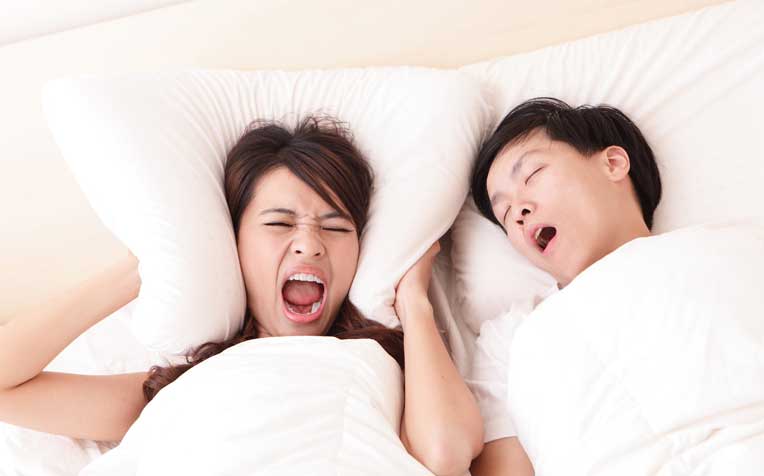
Obstructive sleep apnea tends to occur in more women after menopause.
Loud snoring that changes in intensity may be a sign of sleep apnea.
About 15 per cent of Singapore’s population has obstructive sleep apnoea
This compares with 15 to 20 per cent for Asians in general and about 25 per cent in Koreans. While the smaller body skeletal structure among Asians tends to be the cause of the disorder, obesity is the main cause for Caucasians.
Obstructive sleep apnea affects more men than women
Patients tend to be males in their 30s or 40s, and the incidence tends to rise in women after menopause.
Not all snorers suffer from sleep apnoea, but patients with sleep apnea all snore
Soft, rhythmic snoring is usually harmless. But if the snoring becomes loud and changes in intensity, it may be indicative of obstructive sleep apnea.
Severity gauge
The apnea-hypopnea index (AHI ) measures the number of complete airway blockages (apnoea) and partial obstructions (hypopnea) that occur every hour during sleep. An AHI of 5-15 is considered mild, 15-30 is moderate, and a value greater than 30 is deemed severe.
Blood oxygen levels
Ideally, blood should have at least 95 per cent oxygen. A little dip below that mark is still acceptable, but anything less than 90 per cent is not healthy.
Cure rates
When the AHI is less than five, patients are considered cured. In very severe cases, surgery that reduces AHI to less than 20 is deemed successful.
Quick tips to manage obstructive sleep apnea
To help snoring and mild obstructive sleep apnea
- Reduce weight
- Avoid alcohol or medication that aids sleep as these relax the muscles at the back of the throat and cause obstruction
- Sleep on one side or on the stomach, instead of facing up, to prevent the tongue and soft palate from collapsing against the back of the throat
- Clear a blocked nose with medication recommended by a doctor or pharmacist
- Use dental appliances that reposition the lower jaw and tongue during sleep
For moderate to severe sleep apnea
- Use a CPAP device to keep the airways open during sleep
- Undergo surgery to enlarge the back of the throat
Ref: T12
Contributed by
Related Articles
Public Events
Get the Health Buddy App
© 2025 SingHealth Group. All Rights Reserved.


















 Get it on Google Play
Get it on Google Play